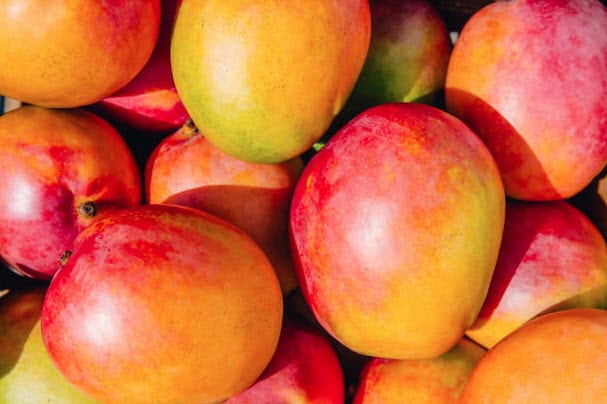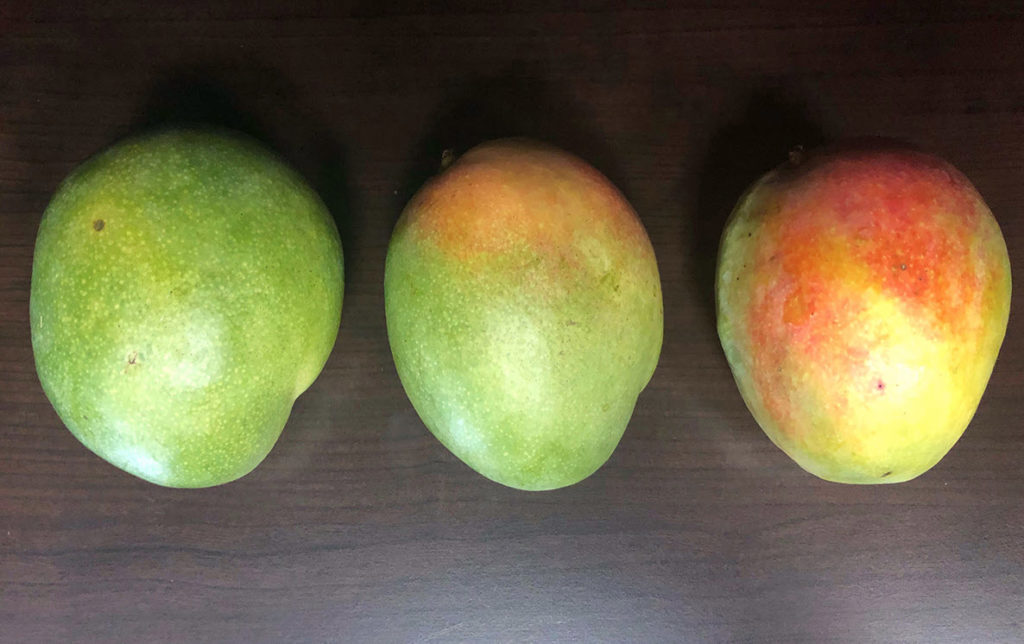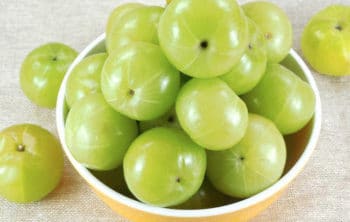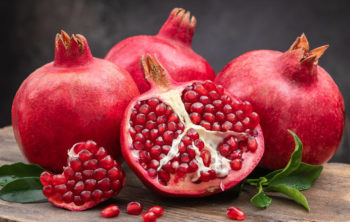Contents
Mango: Nutrition and Health Benefits for Daibetes, Immunity, Eyes and More
Mangoes are a sweet, juicy fruit that is enjoyed by people all over the world. But what is mango and why is it so good for you? In this blog post, we will answer those questions and more. We will also share some of the amazing health benefits of eating mangoes regularly. So if you are looking for a nutritious and delicious fruit to add to your diet, be sure to give mango a try!
1. What is mango and where does it come from?
Mango is a fruit that is enjoyed by people around the world. It has a variety of nutrients and health benefits, as well as many uses in both sweet and savory dishes. Mango trees grow throughout tropical regions such as South America, Central America, West Africa, India, Malaysia, Viet Nam and Thailand. Mango can be found in grocery stores or farmers’ markets where they are typically harvested from December to March depending on the region/country.
Mangoes come in different colors depending on when they were harvested and what kind they are: green mangoes (unripe), yellow mangoes (ripened), red raw mangoes (ripe). Mango trees produce flowers that later turn into mangos once they become ripe. Mango is a climacteric fruit, which means that the ripening process continues after it has been harvested. Mango trees can grow to be 30-40 feet tall and have large leaves with sharp points on the end. Mango fruit itself is about 5 inches long and 3 inches wide, and can weigh around 1 pound or more depending on its variety.
2. The nutritional value of mango:
One mango provides 190 calories with 33 grams of carbohydrate, 3 grams of protein, 0 grams of fat, 13 milligrams of sodium (4% daily value), 22 milligrams of potassium (1% DV), 10 grams of fiber (37%), 79 IUs of vitamin A (11% DV) in addition to magnesium, folate, vitamins C and E. Mango also provides a substantial amount of antioxidants and carotenoids such as beta-carotene and lutein. Mango is known to be low in saturated fat and cholesterol and is very low in sodium. Mango has been found to help lower blood pressure, improve vision health, fight cancer, prevent arthritis symptoms, reduce the risk of cardiovascular disease ,and more. Mango has even been found to increase physical endurance.
Mangoes are a great source of various minerals, especially iron and calcium. They also contain iodine as well! The most important polyphenol found in mangoes is called “mangiferine.” This antioxidant works to protect against free radicals that cause cell damage – leading us towards healthier cells which can fight off diseases better than ever before.
3. Health benefits of mango:
What are mangoes good for? Mango is not only delicious but a very healthy fruit. Mango leaves can treat wounds and other problems while mango has many benefits. Mango fruit help in digestion, weight loss, constipation relief, diabetes prevention, acne treatment, improving eyesight and much more. Here are some of the important uses of mango fruit, mango leaves and other part of mango tree.
1) Immunity booster:
Mango is rich in minerals and vitamins, which contribute to a healthy immune system. It provides good amounts of vitamin A or C; both are necessary for maintaining the body’s natural defenses against infection. For patients suffering from low immunity, it can be helpful to have one cup every day as part their treatment plan- though this may vary depending on what type you choose.
2) For heart:
There are many benefits of eating mangoes, one being their magnesium and potassium content. In various studies it has been shown that less sodium with a good amount of this mineral can be beneficial for your heart health.
3) Improves digestion:
Ripening mango provides good amount of digestive enzyme Amylases. This is an important food for people who have difficulty digesting sugar, because it helps break down the carbohydrates in our diet so we can absorb them more easily! Unripe or raw mangos also carry medicinal properties that may be useful when treating anorexia – just boil 1 unripened fruit with 200ml water until softened then mash up before drinking straight from pot till cooled off enough to handle safely; allow patient at least 3 cups per day minimum but no more than 3 servings total during any given mealtime period.
4) For eye health:
Mango is a great way to get your daily dose of vitamin A, which helps with eye health. One mango provides more than enough for an entire day’s worth and can even improve eyesight.
5) Mangoes for leucorrhea :
People have a tendency to throw away mango seed as it is perceived useless. But these seeds can be beneficial for vaginal discharge if taken after breaking the shell and drying under sun or in an oven with low heat setting- whichever suits you best! The powder from dried inner core of this fruit will help in reducing irritation caused by bacteria around your private parts while also providing nutritional value through protein, iron & vitamin C content which helps fight off infections too so don’t forget about using them during times where they’re most needed like right now during flu season.
6) Mango for diabetes:
Mango pulp is juicy and sweet, which raises the question of whether or not mangoes are good for people with diabetes. A comparative study on what’s inside will tell you all about how these fruits can benefit your health! The high amount vitamin C in them helps prevent cardio-intestinal diseases like heart disease and stroke.
Incorporated with the therapeutic properties of ginger, powder from mango seed can be used for treating diabetes. To prepare this concoction take 5 fresh leaves and boil them in 200 ml water to make a decoction which should then allow you drink twice daily after 15 minutes finished cooking time has passed; or take 1 gm each day mixed together as above without any side effects according reports about these treatments so far.
7) Mango for blood pressure:
Mango fruit has many health benefits. Mango can be used to prevent high blood pressure and also for lowering the cholesterol levels in the body. Mango is a good source of potassium, magnesium, antioxidants and Vitamin A which helps in preventing heart diseases.
The main antioxidant found in Mango fruit is beta-carotene which may help to lower your risk for heart disease and cancer by protecting against free radicals damage that can cause changes that lead to chronic diseases such as atherosclerosis or coronary artery disease.
8) For skin:
Vitamin C is an essential cofactor in the production of collagen, which provides structural support to skin cells. The lack thereof can lead you looking older before your time. As such foods rich with vitamin C like mango should be eaten regularly for beautiful glowing softness all over – it’s good news because this fruit tastes delicious too.
9) Prevention from cancer:
Polyphenols in the mango are powerful antioxidants that can reduce cancerous tumors. Studies show a link between good amounts of these nutrients and reduced growth rates for emerging cancers, as well as preventing them from spreading once they’ve formed – which means you’ll have more chances at survival.
10) Unripe or raw mangoes in pregnancy:
The pregnant woman’s body needs more nutrients than usual, so eating unripe or raw mango can help with morning sickness. The high amount vitamins C and fiber in these fruits will keep you feeling better throughout your entire pregnancy.
4. How to select a ripe mango?
Mango is one of the most famous tropical fruits around. Mango is an oblong fruit that comes in various colors, including yellow, green and red. Mango has soft flesh that contains numerous small brown seeds inside it. You can eat mango on its own or add it into your favorite recipes like Mango Milkshakeand Mango Mousse. Eating Mango Mousse is great for summer time; however, you will need to know how to select a ripe mango before deciding you want to make Mango Mousse .
1) The color of skin:
What does a ripe mango look like? One way of determining whether a mango is ripe without having to open it first is by looking at the outside shell’s color. Mature mangos tend to have a yellowish orange skin. Mango with greenish skin are not ripe yet. If the color of the skin is still pale, it means that mango is still not ready for harvesting.
2) How to examine mango texture:
To check texture of mango, gently press mango with your finger. Mango that feels soft will never produce sugary taste that you are looking for in mango. Therefore, you need to avoid mango without much indentation on their skin. On the other hand, mango with too many dents on their skin may indicate they are overripe and contain less sugar than those who do not have dents on them.
3) Mangos ready to be harvested:
Mango with greenish skin or pale skin means they are still unripe and it is still early to harvest them. To determine ripeness of mango, listen to its cracking noise carefully; if it sounds quiet but produces crunchy sound when you bite mango, you can harvest mango with some confidence. Mango with slightly dents on their skin is ripe but still contains less sugar than mango which are free from dents.
4) How to select a mango based on weight:
Another way to tell whether mango is ready is by judging the weight of mango. Those that feel lighter are not ready for harvesting yet. On the other hand, those that feel light are already ripe and have enough sugar that fill up inside them. However, there are exceptions, mango with red skin are always ready for harvesting regardless of their weight.
5) How to select a mango based on its smells:
Finally, you can tell whether mango is ripe by smelling it closely. Mango that smells too sharp or sour indicates they are still raw and not ready for harvesting yet. Mango that have slight sweet smell, surprisingly, are already ripe and can be harvested immediately. If mango emits strong fruity smell when you put your nose inside it, then this type of mango is ready to harvest without any worries.
5. How to store mangos?
Mango is not very difficult to package and store. Mango should be cut before storing it. Mango can then be wrapped in paper or plastic and stored in the fridge. Mango should never be stored in the freezer as this will damage the flavor of mangoes. Mango can come out of refrigerator any time because it does not last long after being exposed to air, so it is better to leave mangoes at room temperature than wait for them to spoil.
6. Can dog eat mangoes?
Yes, dogs can eat mangoes. They are a safe and tasty treat that will delight your pup! The high nutritional value of the fruit makes it an excellent snack for them to enjoy on occasion or as part of their diet if you’re looking into adding something new into theirs (while keeping in mind not too much).
7. Conclusion:
Mangoes are a nutritious, delicious fruit that is good for your health. Now you know what mangoes are and why they’re so great for you! If this blog post has piqued your interest in the nutritional benefits of these sweet, juicy fruits, be sure to check out our list of recipes with mangos on it. We have some healthy smoothies and salads that will help get more mango into your diet while keeping things interesting by adding new flavors or textures. And don’t forget to sign up for our newsletter below where we share monthly updates about nutrition, fitness tips and other resources related to living an active lifestyle.
Disclaimer:
Above article is only for knowledge purpose. Please contact your healthcare provider before using any of above medicine or method. For any query or personal consultation according to your health condition please contact your doctor.






